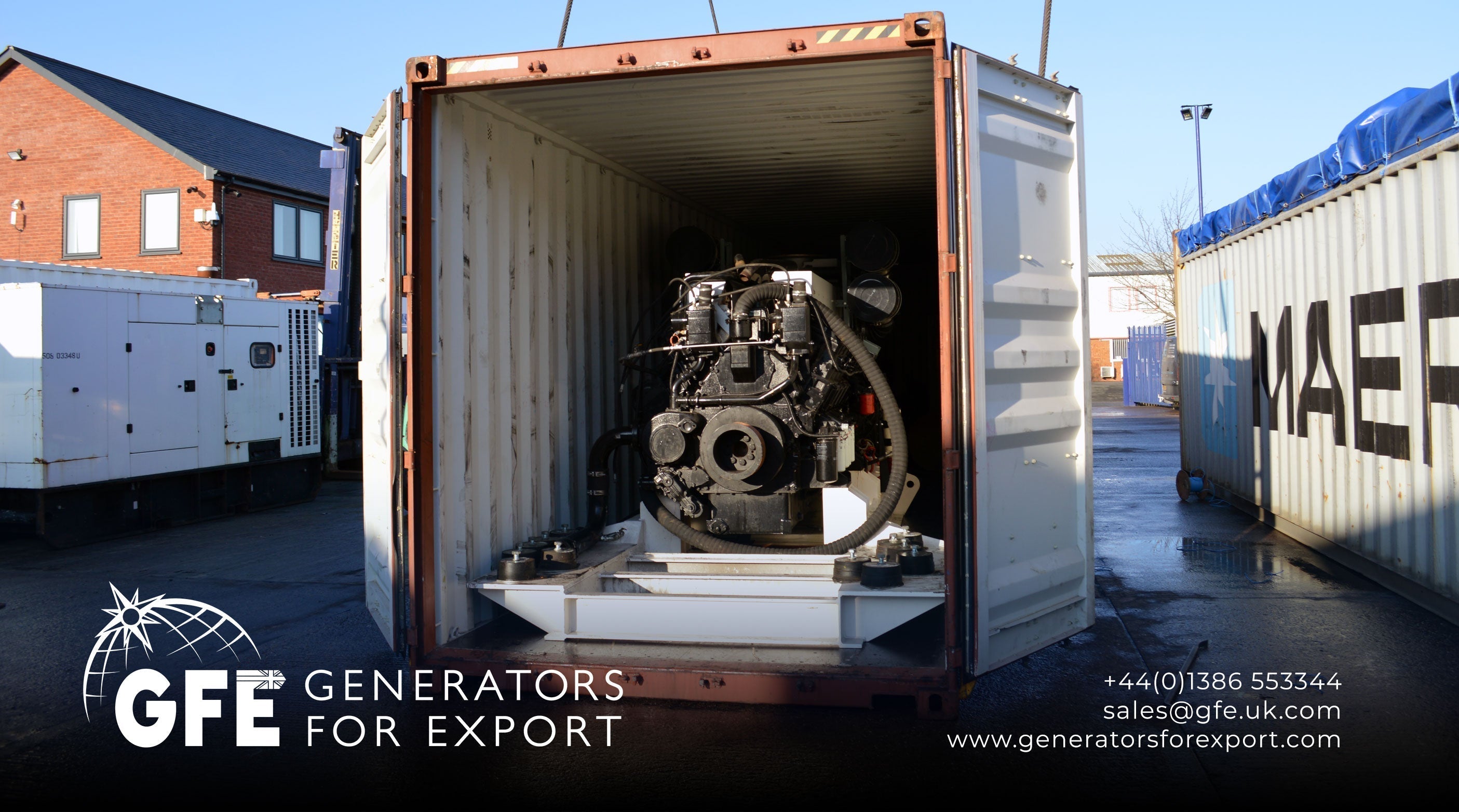When buying a generator, one of the most important specifications you'll come across is kVA (kilovolt-amperes). But what exactly does kVA mean, and why is it so crucial when selecting a diesel generator? At Generators For Export, we specialise in supplying high-quality used diesel generators, and we know how vital it is to match the right generator to your power needs. In this guide, we'll break down kVA, how it relates to other electrical measurements, and what you should consider when choosing a generator.
What Does kVA Stand For?
kVA, or kilovolt-amperes, is a unit of apparent power in an electrical system. It represents the total power a generator can supply, including both:
- Real Power (kW - kilowatts): The actual usable power that performs work, such as running machinery, lighting, or appliances.
- Reactive Power: Power that is used to maintain the voltage levels in an electrical system, typically caused by inductive loads like motors and transformers.
In simple terms, kVA is the total electrical load a generator can handle, while kW is the portion that does useful work.
The Relationship Between kVA and kW
One common question we get at Generators For Export is, "How do kVA and kW relate to each other?" The relationship between the two depends on a factor called power factor (PF).
Power Factor (PF) is typically 0.8 for most industrial generators.
Formula: kW = kVA × PF
Example: A 100 kVA generator with a power factor of 0.8 would produce 80 kW of usable power.
This distinction is important because selecting a generator based on kW alone could lead to underpowered systems, while choosing based on kVA ensures the generator can handle both real and reactive power.
Why is kVA Important for Sizing a Generator?
When selecting a diesel generator, considering the correct kVA rating ensures you have enough power to run all required equipment efficiently. Factors that influence the required kVA rating include:
- Total Load Demand: Calculate the sum of all equipment and machinery power requirements.
- Starting Surge Loads: Motors and compressors require more power when starting than running.
- Future Expansion: Consider additional power requirements if your business is likely to grow.
- Voltage and Phase: Ensure compatibility with your site’s electrical system (single-phase or three-phase power).
Under sizing a generator can lead to frequent overloading, while oversizing one can result in unnecessary fuel consumption and costs.
kVA Ratings for Different Applications
Different industries and applications require different generator capacities. Here are some common scenarios:
Small Businesses & Homes
- Typically require 10 – 50 kVA.
- Ideal for backup power in case of outages.
- Suitable for essential systems like lighting, computers, and appliances.
Construction & Industrial Sites
- Often need 50 – 500 kVA depending on machinery.
- Required for running heavy equipment, tools, and site offices.
- Diesel generators are preferred due to durability and fuel efficiency.
Data Centres & Large Commercial Operations
- Demand anywhere from 500 kVA to 2000+ kVA.
- Essential for continuous, uninterrupted power.
- Often include multiple generators for redundancy.
Export & Global Use
- Used diesel generators between 40 kVA and 1000+ kVA are popular for international markets.
- Many buyers seek containerised solutions for ease of shipping.
At Generators For Export, we supply a range of generators suited to all these applications, ensuring our customers get the right power solution. View our wide range of used diesel generators.
kVA Considerations When Buying a Used Diesel Generator
When purchasing a used diesel generator, understanding kVA ratings helps ensure you get the best value for your needs. Consider these key points:
- Condition & Maintenance History – Check service records and overall condition.
- Age & Hours of Use – Older models with high hours may require more servicing.
- Brand & Engine Type – Well-known brands like Cummins, Perkins, or Caterpillar offer reliability.
- Load Testing – Ensure the generator meets its kVA rating under real-world conditions.
- Export Regulations – If shipping overseas, check for compliance with local power standards.
kVA vs kW: Common Myths and Misconceptions
There are several misunderstandings about kVA and generator sizing. Let’s clear up a few:
"Bigger is always better."
- Oversized generators can waste fuel and increase maintenance costs.
"All generators with the same kVA rating provide the same power."
- Efficiency and power output depend on engine performance and power factor.
"kVA is the same as kW."
- kVA includes both real and reactive power, while kW measures actual usable power.
"I can just add up my appliances’ kW to find my required generator size."
- Surge loads, power factor, and load types must also be considered.
Choosing the Right kVA Generator
Understanding kVA ratings is crucial when selecting a generator that meets your power demands efficiently. Whether you're looking for a small backup generator or a high-capacity industrial unit, choosing based on accurate load calculations will save costs and improve reliability.
At Generators For Export, we have extensive experience in supplying quality used diesel generators for businesses worldwide. Our team is here to help you choose the right generator with the correct kVA rating to match your needs.
Not sure what size generator you need? Use our kVA Calculator to find the perfect power solution for your requirements.
Need assistance? Contact us today to find the perfect generator for your power requirements.
Call: +44(0)1386 553344 | Email: sales@gfe.uk.com

